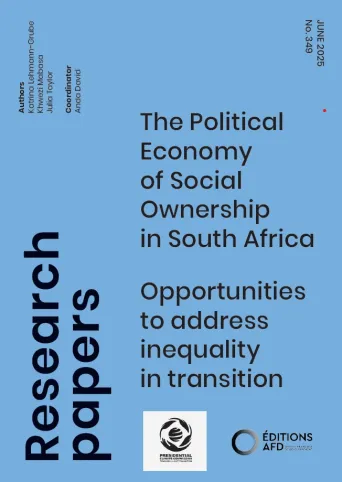Share the page
The Political Economy of Social Ownership in South Africa
Published on

South Africa has high levels of persistent, structural inequality. Social ownership has remerged in recent years as an opportunity to address inequality, particularly in the context of the just transition. The just transition refers to the manner in which the transition to a low-carbon economy is achieved. Social ownership is proposed as a means to reduce the concentration of wealth, improve access to resources and labour opportunities for a more equitable society.
This research paper examines how models of social ownership in different sectors can be used to address inequality in post-apartheid South Africa to support a just transition. We draw from the literature on social ownership, expert interviews, and case studies in energy, agriculture, mining and finance sectors, with a specific focus on the following ownership models: cooperatives, public entities, and trade union-led socio-economic development projects. The research findings provide a definition for social ownership, pull out key features of successful social ownership models, and unpacks the ways in which they contribute to reducing inequality. The paper aims to support policymaking and contribute to ongoing debates over economic restructuring and inequality.
Useful Information
-
Authors
-
Katrina Lehmann-Grube, Khwezi Mabasa, Julia Taylor
-
Coordinators
-
Anda David
-
Edition
-
349
-
Number of pages
-
77
-
ISSN
-
2492 - 2846
-
Collection
-
Research Papers
-
Languages
-
english
